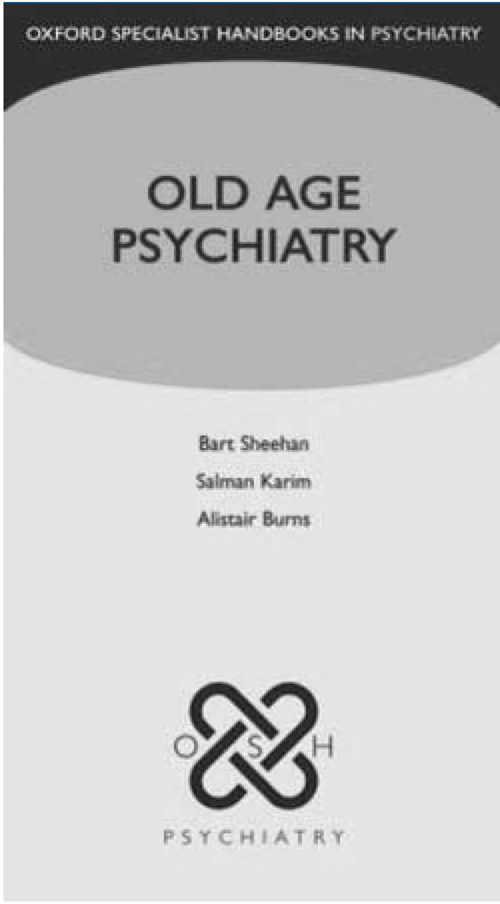
This handbook is a rare thing – a pocket-book that fits into real pockets. This concise volume should be useful to a range of readers. It could be read cover to cover by medical students on a 2-week placement in old age psychiatry. Topics likely to crop up for junior doctors on call in psychiatry or general medicine are dealt with in a very practical way, such as managing an older person after an overdose or the management of delirium in a general hospital setting.
The nine chapters include basic topics such as dementia, delirium and mood disorders, but wider issues, such as services or ethical and legal issues, are also allowed consideration. Sections on differential diagnosis of dementia and the range of ways in which late-life depression can present are particularly well done. Space is also found for the neurobiology of late-life mental disorder as well as areas of scientific development within the field, for instance vascular depression, and hot topics in service provision, such as ‘Are antipsychotics dangerous in dementia?’
On closer inspection, one or two topics could be improved. Trainees might value a more comprehensive list of possible causes of delirium and the advice on maintenance treatment of depression seems slightly woolly. There is little room to include case examples in a book of this format and one wonders whether most of them will go unread.
In summary, the authors are to be applauded in their efforts to produce a book which is practical yet stimulating and has so little impact on our planet's scarce resources.



eLetters
No eLetters have been published for this article.